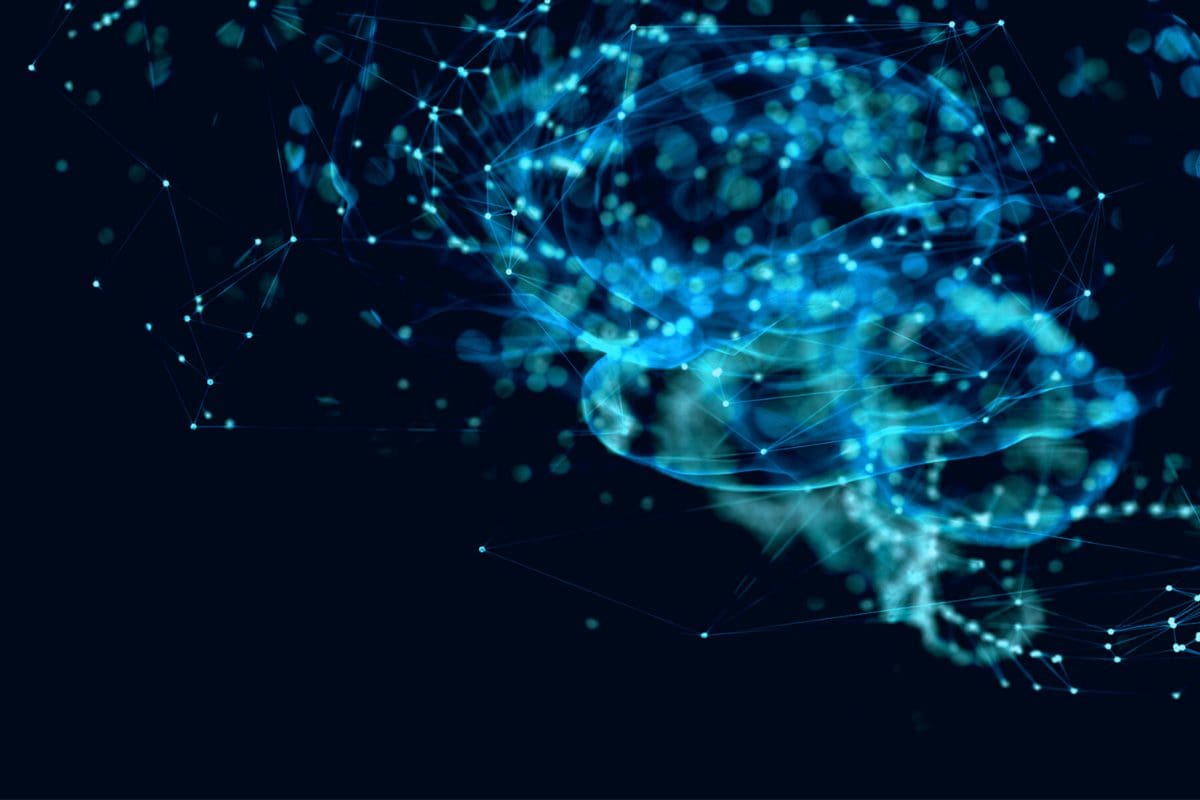In a proof-of-concept collaboration between the IEEE Standards Association (IEEE SA) and the City of Vienna, the newly developed IEEE CertifAIEd framework was successfully applied to an artificial intelligence (AI) system for the automatic categorization of incoming customer requests.
Addressing Risks of Artificial Intelligence Systems
AI applications are increasingly being developed and deployed in real-world scenarios across all domains, sectors, and areas of life, as this exciting innovative technology has tremendous potential for economic and societal benefits. However, like with many other technologies, there are specific associated risks and fundamental questions that need to be addressed. In many areas, this has led to the development of standards and legal regulations for the respective industries. For AI, such guidelines still need to be established and the public discourse is currently taking place.
What are the risks that need to be considered in the context of autonomous intelligent systems? The aspect of safety naturally comes to mind. Of course, physical harm or even deaths caused by misbehaving intelligent machinery are unacceptable. As AI systems often deal with data collected about people, data protection and privacy is another aspect to consider. Both safety and data protection are of utmost importance and need to be addressed adequately in the design and deployment of AI systems. However, one could argue that they are not entirely new, or unique to the field of AI. In fact, many standards and regulations for safety exist in the respective industries (e.g., the automotive industry) and the introduction of the General Data Protection Regulation (GDPR) in the European Union has had a significant impact on data protection, in the EU and worldwide.
However, if we think of autonomous and intelligent systems that are used to automate decisions in areas such as law enforcement, jurisdiction, social services, job recruiting, or housing, it becomes apparent that potentially very serious risks can exist for the involved people and society at large, even if nobody suffers direct physical harm and all data protection standards are meticulously met. For this area, well-established standards and legal regulations are currently lacking.
There are current initiatives to address this deficiency, including a proposal by the European Commission for a regulatory framework for AI from April 2021 (AI Act full text) that would lay down legal rules on the use of AI in the EU, with potential worldwide effects, similar to the GDPR. This proposal follows a risk-based approach and would make risk assessment and assessment of conformity to the defined requirements for the resulting risk class obligatory by law before placing AI systems on the market.
Enter IEEE CertifAIEd Framework for AI Ethics Certification
IEEE SA has been developing a certification process for AI systems called IEEE CertifAIEd, which is based on the work of the IEEE Ethics Certification Program for Autonomous and Intelligent Systems (ECPAIS). IEEE CertifAIEd defines a risk and conformity assessment procedure to follow for a specific AI system or service. The institution seeking certification for its product, service, or system provides detailed insights to a trusted authority according to the IEEE CertifAIEd guidelines. After successful completion the institution receives a certificate, stating that the product meets the ethical criteria set forth by IEEE CertifAIEd.
IEEE CertifAIEd defines four criteria sets for the assessment of ethical properties of autonomous and intelligent systems:
- Transparency
- Accountability
- Algorithmic Bias
- Privacy
Each of these is of higher or lower relevance to a specific system or service and its application domain. Accordingly, any subset or all of them may be selected for carrying out the assessment of a given product.
First Proof-of-Concept for IEEE CertifAIEd Completed with Wiener Stadtwerke
Recently IEEE CertifAIEd’s first real-world test was completed in a pilot project between IEEE SA and Wiener Stadtwerke, by applying IEEE CertifAIEd process to a concrete AI application. Wiener Stadtwerke is a public service provider owned by the City of Vienna, providing services in the areas of public transport, electricity, natural gas, heating, telecommunications, parking, burial, and cemeteries, to more than two million customers in the Vienna metropolitan region. With more than 15,000 employees and annual revenue of more than three billion euros, the Wiener Stadtwerke group belongs to the largest 25 companies in Austria.
As a regional infrastructure service provider, Wiener Stadtwerke makes a significant contribution to the high quality of life in Vienna and is the number one provider of public services to the citizens. Sustainability and Corporate Social Responsibility (CSR) are central and integral parts of the corporate strategy. Vienna’s citizens and the general public justifiably have high expectations towards “their” service provider, including the area of ethics.
In recent years, the Wiener Stadtwerke group has explored several ideas for using AI technology in pilot projects, always adhering to the overall goal of efficiently delivering high-quality services to the citizens of Vienna. One of these was selected for thorough ethical evaluation in the IEEE CertifAIEd pilot with IEEE SA. This is an email classification system (ECS), which is used to automatically assign categories to incoming customer service requests.
The customer service department of Wien Energie (an energy provider belonging to the Wiener Stadtwerke group) receives more than 1,000 email requests per day, which need to be briefly skimmed over by a person and assigned to one of about 15 categories. This categorization results in tickets assigned to different teams for processing, where every email is read by a human operator, who will then determine and initiate the appropriate actions and send a reply to the customer. The manual pre-categorization procedure amounts to one person’s entire work time per day, even when less than 30 seconds are spent per email. And it is a very repetitive, monotonous, and tiring task. The ECS was developed to automate this pre-categorization step, effectively relieving one customer service operator to focus on actual customer interaction again, and thus making better use of their qualifications and training.
Because the described manual procedure has been applied for years, an excellent data collection of several hundred thousand emails with manual category assignments by experts was readily available, providing a very promising starting position for a machine learning approach to the problem. Furthermore, a new data scientist (the author) had recently been hired at Wiener Stadtwerke with an AI research background and strong expertise and experience in the field of natural language processing. Therefore, a group-internal project was initiated in 2019 to explore the possibility to develop an automatic categorization system from scratch, which gradually led via increasingly mature prototypes to a production-ready email classification system.
Five Steps to IEEE CertifAIEd Assessment of Wiener Stadtwerke's Email Classification System
The first step in the evaluation process was to thoroughly explain the system and its context to a panel of five IEEE experts, including the background and goals of the project, the system’s architecture and interfaces, the machine learning component, and the data used for model training, as well as the effects of the new system on people and processes in the organization.
Based on this information, a risk assessment according to the IEEE CertifAIEd framework was conducted. For each of 26 ethical values such as transparency, dignity, trust, and (avoidance of) discrimination, the expert panel rated the likelihood of the ECS to undermine that ethical value, considering concrete potential scenarios in the system’s deployment in the Wiener Stadtwerke context. The results of this risk analysis were used to determine the most relevant of the four IEEE CertifAIEd criteria sets for the application – accountability in the case of the ECS. Furthermore, the overall low-risk class of the system resulting from the risk assessment meant that only a subset of the accountability criteria set needed to be addressed in the following step.
Next IEEE SA provided a list of 43 ethical criteria with brief definitions to Wiener Stadtwerke, who were then to provide evidence for each criterion, showing that the respective ethical question or issue is adequately addressed in the system and its context. These criteria range from rather technical aspects such as error analysis, hyperparameter tuning, and mitigation of false positives, to more governance-related aspects concerning the organization, such as adopting a layered approach, avoidance of inaction, delay and indifference, and human authority and autonomy.
For each of the 43 criteria, Wiener Stadtwerke provided evidence in the form of technical documentation, system architecture and software implementation details, screenshots, meeting slides and meeting minutes, internal and public reports, strategy papers, process and role definitions, organigrams, etc., giving full detail for the respective criterion. A so-called Case for Ethics document was compiled, using a structure and template provided by IEEE SA, where Wiener Stadtwerke claim that we believe our system and its use are ethically unproblematic, providing general information about the system, its background, scope, etc., (similar to step one, but in written and structured form) as well as all the evidence for the 43 accountability criteria. This Case for Ethics, a 150-page document, was then submitted to IEEE for assessment.
Finally, an assessment report was delivered back to Wiener Stadtwerke by IEEE SA. This included specific feedback for each of the 43 criteria from the expert panel members, indicating to what degree the respective criterion was considered fulfilled and what could be done to further improve in the respective area. It also included an overall confirmation that the submitted Case for Ethics justifies recognition and certification through the IEEE CertifAIEd program for Wiener Stadtwerke’s email classification system.
Get Involved
With the positive completion of the assessment, all that remains is to celebrate the success of this joint pilot project. A ceremonial and press event with representatives from IEEE SA, Wiener Stadtwerke, and the City of Vienna is scheduled for November 2021 in Vienna.
For Wiener Stadtwerke as an organization, the work on this particular application is really only the beginning of a journey towards ethical excellence in the use of AI technology. The expert panel feedback contains many useful pointers to things that could be further improved. The experience gained in this pilot evaluation will make further assessments of new systems or services easier – probably for both Wiener Stadtwerke and IEEE SA.
After undergoing the IEEE CertifAIEd procedure with our email classification system, we believe at Wiener Stadtwerke that IEEE SA has developed an excellent framework for thorough ethical evaluation of intelligent autonomous systems. It is suitable for practice from the point of view of an organization seeking certification for its products, and it exercises sufficient scrutiny to adequately protect the interests of affected individuals and society at large.
Learn more about how IEEE CertifAIEd can help guide your organization towards responsible innovation
Author: Dietmar Schabus, Data Scientist, Wiener Stadtwerke









